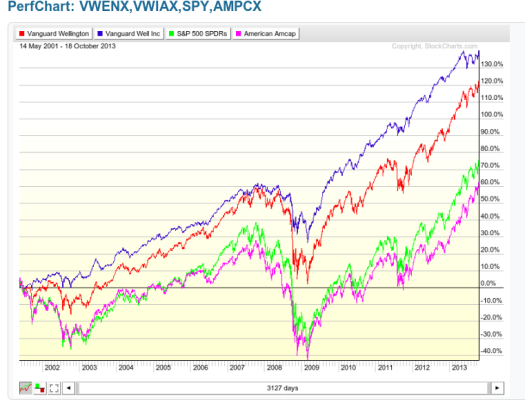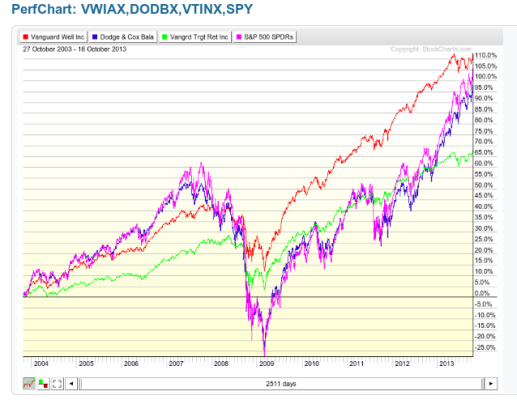gcgang
Thinks s/he gets paid by the post
- Joined
- Sep 16, 2012
- Messages
- 1,571
https://www.americanfunds.com/pdf/mfcpwp-028_capidea913.pdf
While I know this will brand me a heretic on this board, above link seems to make a compelling case for some (one in particular) active managers.
The idea of suffering less when the index goes down is particularly appealing.
Full disclosure - I've had $ with this organization for 30 years. I did not have to pay the sales charge as shares were purchased thru a company plan. Now I've retired, I have enough with them that additional purchases are not subject to the charge due to the "ROA breakpoint".
While I would incur no tax hit to change investments in my IRRA, it doesn't seem to make sense to change to indexes, assuming the funds still meet my objectives. Right?
While I know this will brand me a heretic on this board, above link seems to make a compelling case for some (one in particular) active managers.
The idea of suffering less when the index goes down is particularly appealing.
Full disclosure - I've had $ with this organization for 30 years. I did not have to pay the sales charge as shares were purchased thru a company plan. Now I've retired, I have enough with them that additional purchases are not subject to the charge due to the "ROA breakpoint".
While I would incur no tax hit to change investments in my IRRA, it doesn't seem to make sense to change to indexes, assuming the funds still meet my objectives. Right?




